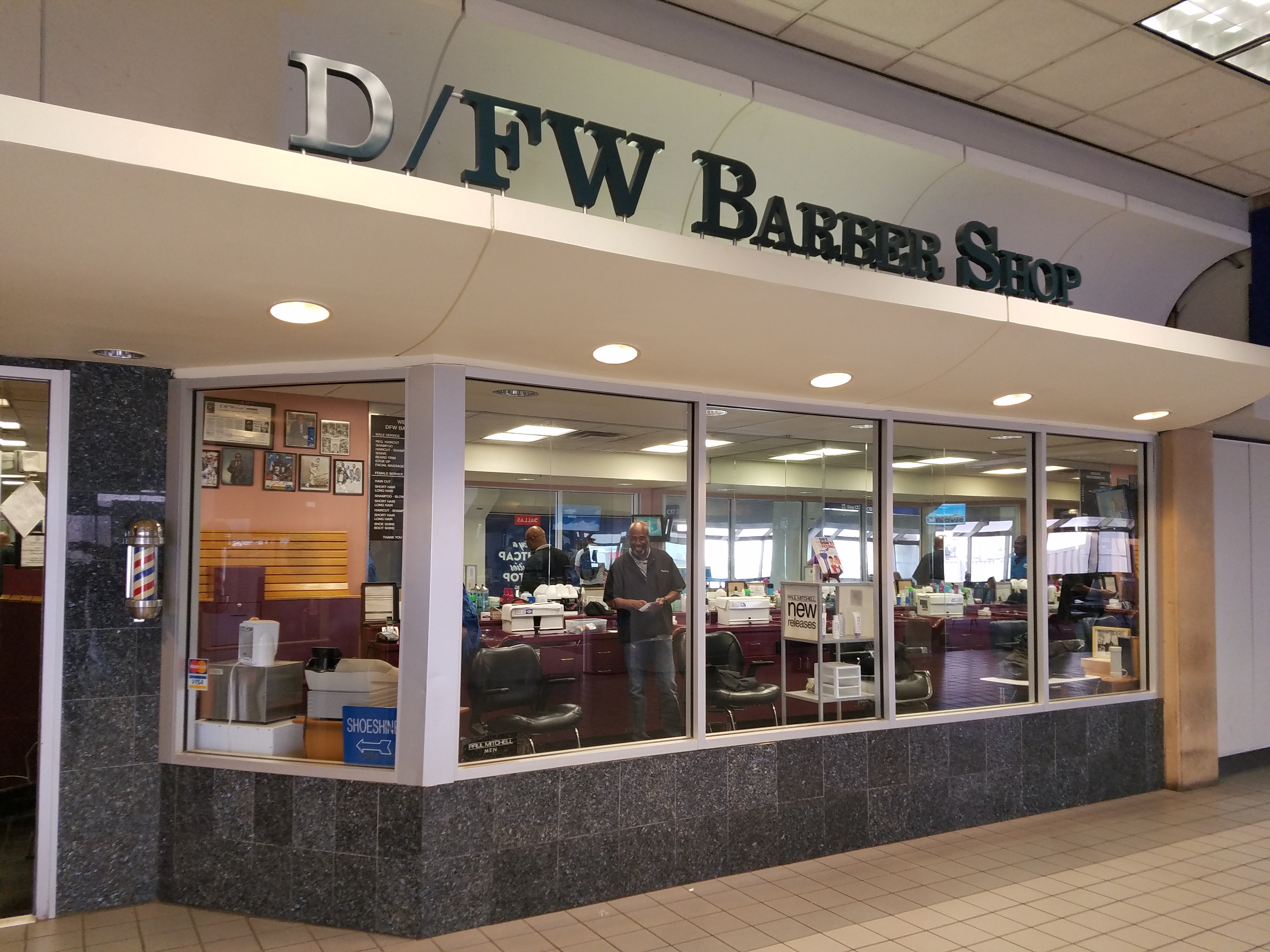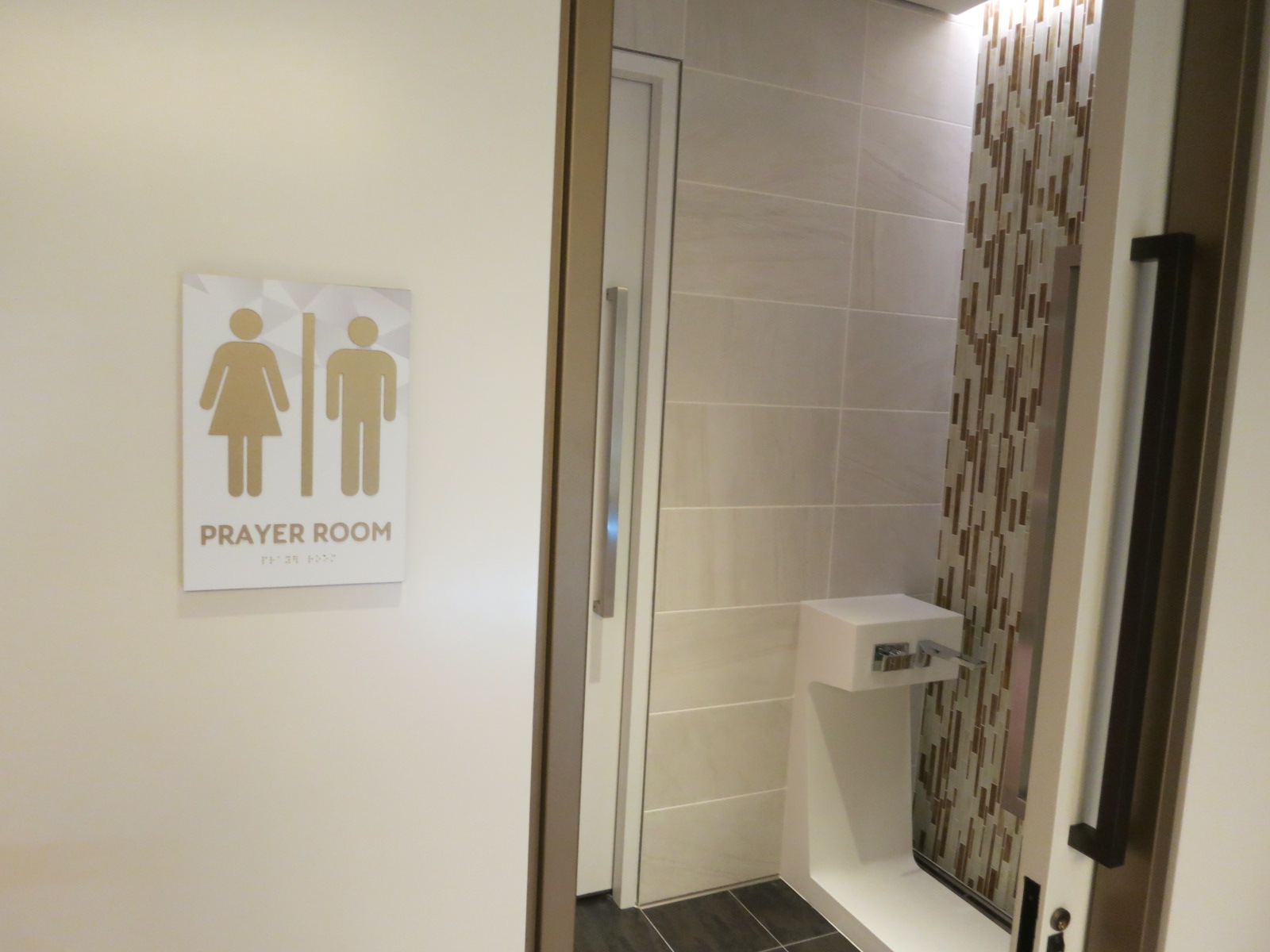Some time back Tyler Cowen pointed me to God on the Fly? The Professional Mandates of Airport Chaplains (Sociology of Religion, Volume 78, Issue 4, 8 January 2018, Pages 437–455),
This article contributes to Bender et al’s efforts to explore religion “on the edge” by analyzing how religion and spirituality are present in one set of public institutions—airports (2013).
I ask how airport chaplains articulate the professional mandate or basis on which they do their work. Rather than making legal or economic arguments, common in the literature about professional mandates, airport chaplains emphasize the moral demand they perceive for their work. They speak of the need to be present, to see and be attentive to grief, and to serve as a last resort.
As a case, airport chaplains raise questions about Andrew Abbott’s (1988) approach to the professions by defining as “work” actions within airports that other professionals do not. Rather than being in competition with other professional groups for the right to do this “work,” they are working to become a companion profession, one that comes alongside.
I have to admit I’ve never been inside an airport chapel. I walk right past them. I’ve read plenty of articles suggesting that they’re peaceful refuges in crowded airports, a place of peace and quiet to relax religion aside. And I suppose that at least usually the case. But I’ve always felt strange just walking in.
Maybe that dates back to being a child and feeling strange walking into a church, like I was doing something wrong because I’m Jewish. Of course I’ve (arguably) grown up a lot since then. I’ve been a part of Catholic weddings, where other groomsmen took communion, so I simply crossed my arms in order to exclude myself.
I often think of airport chapels serving mostly transient passengers but of course they also serve airport employees. In fact the first ones in the US were Catholic, in the 1950s, started to serve staff rather than passengers. The very first in the U.S. was at Boston Logan named “Our Lady of the Airways.” The second was at then-Idlewild (now JFK) in New York, “Our Lady of the Skies.”
Airports as mini-cities have myriad amenities (although some amenities are missing, fully stocked drugstores and dry cleaners are surprising absent from most in the States and I was disappointed when the barber shop at DFW learned it would get kicked out after 43 years). There are spiritual needs as well as audio/visual needs.

The Old DFW Barber Shop
The description of an airport chaplain wandering around, with intent, looking for people that need them was interesting — being there is work, and even religious work needs sales or prospecting.
Something else that happens behind the scenes that most of us don’t think about,
Chaplains also play roles around death when dead bodies move through airports and people who work at airports die.
…Chaplains are also frequently the individuals who notify loved ones when someone dies in flight. A few times a month in Atlanta, for example, a passenger becomes seriously ill or dies in flight—typically on an international flight.

Prayer Room, Etihad Residence Lounge New York JFK
Airport police will also sometimes refer problems to the airport chaplain as an alternative to arrest. And I recall a Scott McCartney piece in the Wall Street Journal suggesting that the chaplain can sometimes help with crowd control, people behave better around religious figures.
Interestingly there’s no chapel in my home airport. There’s also no designated chapel space at Las Vegas, Los Angeles, or Philadelphia either. Dallas Fort-Worth has 5.
Have you ever spent time in an airport chapel? What did you go for? Did you interact with the chaplain? I wonder if it’s part of the regular routine for any readers, whether as passengers or airport or airline employees.


Some airports have very active chaplaincy groups. Atlanta is one… they even host an annual golf tournament and the discount cards needed for employees to get discounts at airport concessions are sold to benefit the chapel. I know that the chaplaincy there has helped with employee and passenger deaths, has even helped with funeral expenses for an employee who died on the job, and helps with passengers in difficult situations like arriving there and a spouse abandons them.
A couple months ago I was arriving into CLT on an American Eagle flight and saw out the window, at the next gate, a man in shorts and tennis shoes with a purple safety vest with a cross and “CHAPLAIN” on the back going agent to agent shaking hands and patting folks on the shoulder. A lot seemed enthusiastic to see him. CLT, ATL, BOS all hold regular services. I know airport employees in BOS who have taken Catholic mass at the airport chapel for decades even on days off (which really is beautiful if you ever have the time… it’s a very quiet place, a little out of the way, but also has some wonderful historical items and tributes to aircraft accidents, long time departed airport/airline employees – like a former BOAC station manager who was a Sir).
As an airline manager, I’ve used airport chapels as a place to allow families to sit in peace after, say, a death on board (or waiting for the recovery from a diversion where a family member passed away, and now the child is en route). Unfortunately in a number of airports (like BWI for example) the chapel has to be locked to prevent access by homeless people.
MCO has a small chapel, just past one of the TSA checkpoints, in between the two trains out to the west side airsides… I have seen Muslim airport employees using the area for prayer.
I think they are great parts of the airport community and active chapel programs and chaplains provide great support to those in some stressful positions, both working and traveling. Most of it is non-denominational work despite the affiliation, because it’s more about a caring person.
To your other points, in ATL they did propose a dry cleaners outside of security down by the AA baggage claim, which unfortunately never came to fruition (the space was straight ahead if you went from AA bag claim toward the exit to the curb, just as you turned right to head outside). PIT still has a Rite Aid in the concourse and has a full service post office (though now with very limited hours). I used to use both often when traveling on US Airways. Very helpful as somewhere like a post office is hard to get to when traveling during the day.
Unless in a hurry, I always stop by the chapel before departure except if it’s far away. IAH, MDW, DEN, SIN, JFK T4 are all convenient.
Large airports, IAD for example, have interfaith prayer rooms where services of all religious denominations are held. And given that Austin now has one of the highest crime rates in the US (according to a national crime statistics website), a few more clergy located there just might be a good idea!
I’ve seen that chaplain at CLT NedsKid refers to – he was greeting arriving passengers off a flight just because.
My guess has been the chapels are still largely for the local staff, as was the original intent per Gary’s research.
SAN has an agnostic spiritual / meditation room in T2 East airside just before the upper level exit.
The article was really interesting, Gary. Thanks for posting it. While I’ve considered myself religion-free since declining a bar mitzvah, I also see the value of such sincere and caring workers. In fact, it would be great if there were also other clergy from non-Christian religions and counselors (social workers and psychologists would be ideal) in many places where people congregate. While obviously there are serious budget issues with such an idea, it might pay for itself in a reduction of violent incidents. Imagine if every stressed or angry airline passenger at a major terminal had a chance to talk and vent before boarding, how many fewer in-flight incidents there likely would be.
I’ve popped into a few over the years and attended mass at JFK a few times. It allowed me to get to my gateway city and still fulfill my obligation. Love it.
I had a friend growing up who, despite living in the suburbs, went to Sunday Mass with her family at the Logan Airport chapel, because her dad worked at the airport, sometimes on Sundays, and it just became a tradition. Curious how many chapels around the country offer Mass (an obligation for Catholics — why you see President Biden going to church more than any other recent president).
As a Jew, with a requirement to pray 3 times a day, I very often find myself in the airport synagogue.
As Gary writes, they are an island of serenity amongst the craziness just outside.
It’s always a worthwhile investment to spend a few minutes getting in touch with G-d and your soul, especially when on a trip, whether business or pleasure.
Surely the picture entitled “Prayer Room, Etihad Residence Lounge New York JFK” is the restroom not a prayer room, no?
I’ve been in a few like DFW, STL, etc. I find most are more of a chapel than a church since they are designed to be interfaith and usually, there is no one in them. If figure that it’s only a matter of time when these will disappear from publically owned airports.